Small Boat, Wild Sea: Print
Artist: Francesca Ross
Rated 5.00 out of 5 based on 1 customer rating
(1 customer review)
£12.50
Print featuring original artwork by Francesca Ross.
Out of stock
Additional information
| Weight | 0.055 kg |
|---|---|
| Dimensions | 29.7 × 21 × .2 cm |
Reviews(1)
Add a Review
Add a Review Cancel reply
Sold out
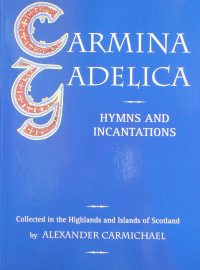

Carmina Gadelica: Hymns and Incantations
Celtic Prayer, Celtic Studies, Celtic Studies & Spirituality, Scripture & Prayer, Spiritual Growth
Carmina Gadelica is an anthology of poems and prayers from the Gaelic oral tradition, the most comprehensive ever collected. They came from communities all over the Highlands and Islands of Scotland, were often shared or performed in the evening ceilidh and therby passed on from generation to generation. Alexander Carmichael complied the collection in the second half of the nineteenth century, and in doing so created a lasting record of a culture and way of life that has now largely disappeared. In the Introduction, Carmichael recounts with great warmth and evident pleasure the hospitality which he received from the people whose songs and stories he was anxious to record "I have three regrets -" he says, "that I had not been earlier collecting, that I have not been more diligent in collecting, and that I am not better qualified to treat what I have collected." Nevertheless, Carmina Gadelica quickly became an invaluable resource for those wanting to study and understand Gaelic culture and for those wanting to experience the beauty and wisdom of its oral literature.
£20.00
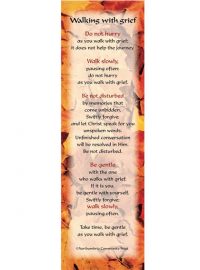

Walking with Grief Bookmark
Celtic Daily Prayer & Liturgy, Northumbria Community Resources & Teaching, Spiritual Growth, The Inner Journey
The poem 'Walking with grief' (from the 'In the shadow of death' section of Celtic Daily Prayer) was written by Andy Raine, one of the founders of the Northumbria Community. It has proved to be of enormous help to countless people all over the world who are struggling with loss, particularly bereavement. This presents the words in the form of a bookmark that can easily be given to somebody in these circumstances, so that they may often remind themselves of the words.
£1.00
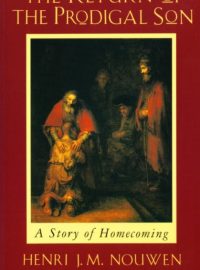

The Return of the Prodigal Son
Influences & Suggested Reading, Spiritual Growth
The Return of the Prodigal Son by Henri Nouwen
A chance encounter with a reproduction of Rembrandt’s The Return of the Prodigal Son catapulted Henri Nouwen on a long spiritual adventure. Here he shares the deeply personal and resonant meditation that led him to discover the place within which God has chosen to dwell.
In seizing the inspiration that came to him through Rembrandt’s depiction of the powerful Gospel story, Henri Nouwen probes the several movements of the parable: the younger son’s return, the father’s restoration of sonship, the elder son’s vengefulness, and the father’s compassion. In his reflection on Rembrandt in light of his own life journey, the author evokes the powerful drama of the parable in a rich, captivating way that is sure to reverberate in the hearts of readers. The themes of homecoming, affirmation, and reconciliation will be newly discovered by all who have known loneliness, dejection, jealousy, or anger. The challenge to love as the father and be loved as the son will be seen as the ultimate revelation of the parable known to Christians through time, and here represented with a vigour and power fresh for our times.
£11.99
Rated 5.00 out of 5
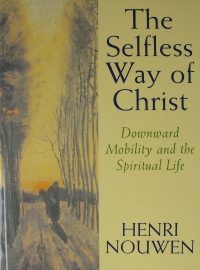

The Selfless Way of Christ
Spiritual Growth, The Inner Journey
Downward Mobility and the Spiritual Life by Henri Nouwen
In these short reflections Herne Nouwen explores the theme of downward mobility as the way of Christ, and the things that tempt us away from it, namely, the lure of success, of power, of being needed and important. Originally serialized in the magazine Sojourners, Nouwen wrote the articles during his years as a professor at Yale Divinity School. There he enjoyed academic success and found fame as a spiritual writer, but was struggling to find his true vocation. Here he seeks to explain for himself and his readers how choosing the downwardly mobile path can, conversely, be the means of growth and new life in Christ.
£8.99
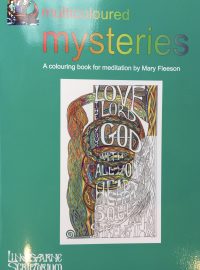
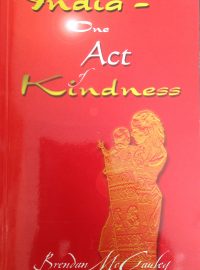
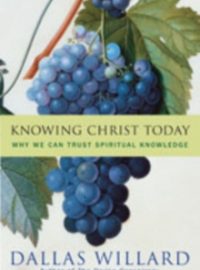
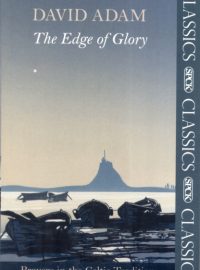


Beautiful print